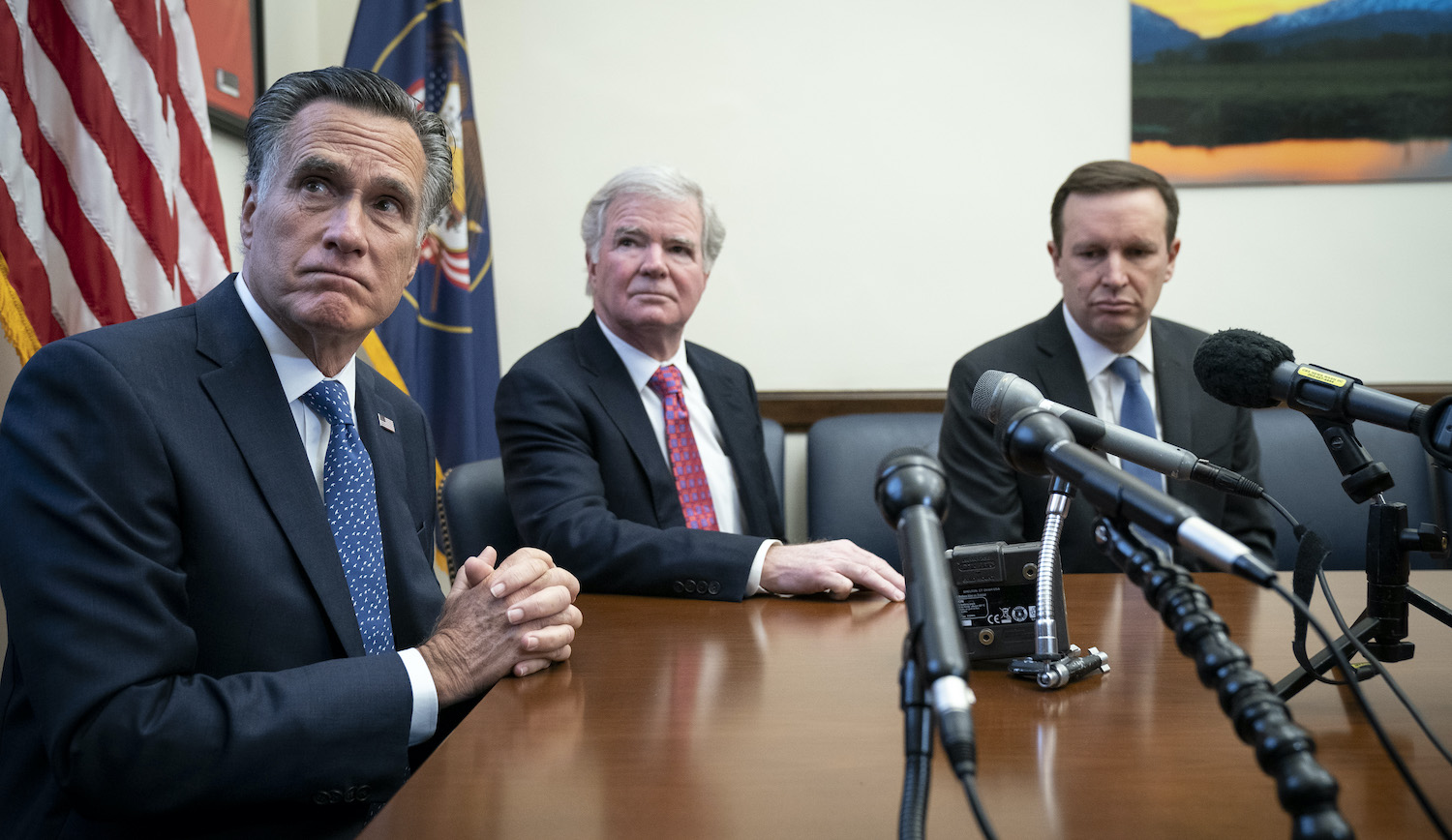The past year has been as tumultuous for college athletics programs as it has been lucrative for college athletes. The combined effect of relaxed transfer regulations and new name, image, and likeness rules has been the creation of something resembling an actual labor market, where players can easily switch schools and can earn money selling their services. Players are not employees, and while the NCAA's maneuvering around NIL rules essentially means someone else is paying their athletes for them, still-exploited players now have serious leverage as a class. This is probably why NCAA big-timers are lobbying U.S. lawmakers in an attempt to maintain their institutional legitimacy.
SEC commissioner Greg Sankey and Pac-12 commissioner George Kliavkoff went to Washington, D.C. on Thursday to plead their case to a handful of United States senators. This lobbying effort is coterminous with the formation of an NCAA task force made up of college administrators, who have created the first set of NIL regulations, will reportedly soon be issuing a warning to boosters, and will "provide more guidance to member schools on what many administrators say are NIL-disguised 'pay-for-play' deals orchestrated by donors to induce prospects." The issue that the elite commissioners and the task force are concerned with is the same one, which is that athletes and boosters have formed a labor market, one where rich, program-adjacent boosters use the prospect of lucrative NIL deals to entice players to come to the schools they support.
"I think it's more likely that we eventually get federal legislation on name, image and likeness," Kliavkoff told ESPN, "but we're also interested in discussing all of the harm that will come to student-athletes if they are deemed to be employees." That last bit gives the game away, and he later said that he would prefer the distribution of seven-figure payouts not be conducted in such a way that they create any incentives, which is pretty obviously impossible. "The amount of an NIL payment should be commensurate with the work done as a backstop to make sure we're not using it related to inducement and pay-for-play," he said, apparently unaware of any relationship between supply and demand, or, for that matter, the decades-long history of boosters paying for play under the table.
The combined NIL and transfer process can be extremely messy: Isaiah Wong's representatives squeezed a better NIL deal out of a prominent booster by threatening to transfer after said booster secured the transfer of KSU's Nijel Pack for $800,000 (plus a car). Three of the stars of St. Peters' Elite Eight run also transferred immediately after their season ended. Wichita State just fired athletic director Darron Boatright in part because his inability to get players paid led to seven Shockers players transferring from the program. From an institutional perspective, something like the Wong negotiation or the prompt self-implosion of a Cinderella team or the Botright firing looks like the effect of an unholy marketization of college sports, an annihilation of lofty traditions and any idea of continuity in favor of the cold logic of bag-chasing. From the athletes' perspective, they can finally earn capital in exchange for their labor instead of having to help the NCAA generate $1.15 billion for free. Even if you believe player turnover has fundamentally altered college sports, any defense of the NCAA on its merits doesn't hold water, since nobody was paid to work.
This market probably should be regulated, and the most logical and fair way to resolve these contradictions is for players to become employees. The effort to disentangle boosters—who pay for players' names, images, and likenesses—from recruitment is both fundamentally impossible and primarily a distraction from the real labor dynamics in play here. To suddenly go after boosters, long a critical part of schools' recruiting efforts, is to swap effect for cause. Athletes are not switching schools because nefarious consortiums of boosters are abusing rules initially intended to allow the local sandwich shop to help the basketball team or whatever; athletes are switching schools because it makes economic sense to do so. A reined-in version of this NIL dynamic still preserves the stranglehold the NCAA has over its players, though that position seems increasingly untenable.
The chaos of the transfer market can't be blamed on players pursuing a simulacrum of compensation they're owed for helping their coaches earn eight-figure salaries. This mess is all on on the NCAA for trying to maintain the stability of a straightforwardly exploitative system long past the point of legitimacy. One hopes that a plea for regulation would result in the body being asked for help drawing the correct and obvious conclusion, which is that the only way to meaningfully "regulate" an industry built on the back of unpaid labor is to destroy the industry entirely. That is almost certainly too much to ask of a gross institution like the United States Senate, but even then, it is also difficult to imagine players going along with a rollback of their ability to get paid now that all this money is flying around in the open. There is a lot still to be settled, though I suppose we should take it as a good sign that NCAA leadership thinks this is all serious enough of a threat so as to require begging for help.






